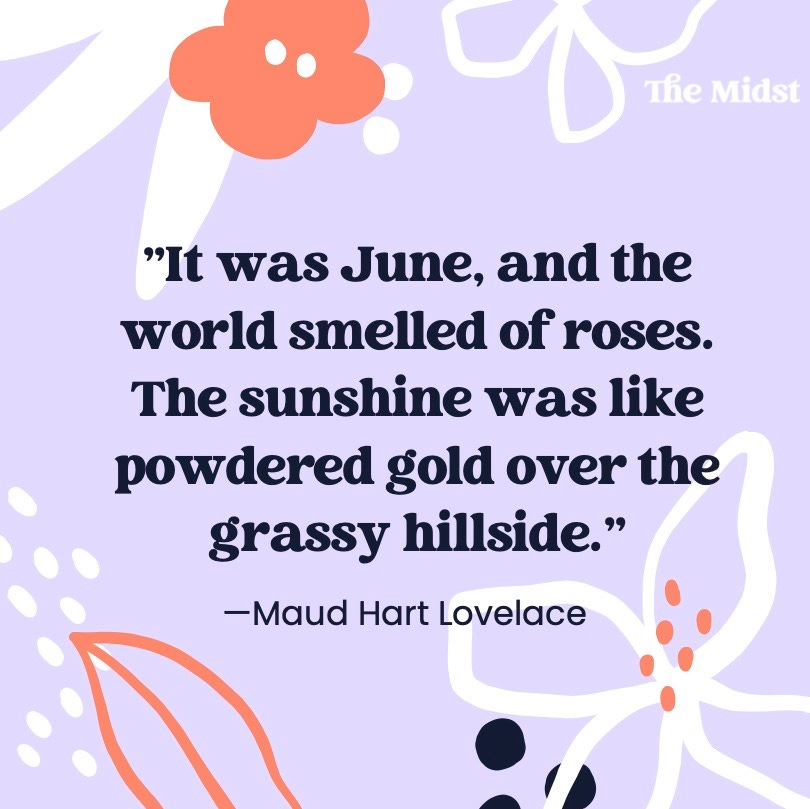Are you overqualified — or overaged — for that job?
PLUS: The trouble with TURMERIC — does it cause more harm than good?
BeWell | The Midst beauty, style & wellness newsletter
Exclusive for subscribers to The Midst Substack
“Should I start my résumé 10 years later?” I asked my job recruiter. I did take off the years I graduated from college and grad school, but the math is simple when your corporate career starts in 1999.
Finding a new job (spoiler alert: we staffers at The Midst still have full-time jobs during this start-up phase), is like being on Tinder all over again. Do I look too old? Do I represent myself respectfully? Is anyone looking at me? And the worst: When will they respond? (Side note: No shame for Tinder users — it’s how I met my partner at 43.)
Despite being completely proficient in my field, despite explaining that I don’t want a leadership position like I once had because I’m focusing on myself (aka, my dreams at The Midst), and despite being insanely easy to talk to (so I’ve been told), the response I get from every hiring manager is:
“We love you, but you’re overqualified.”
What does that even mean? Does “overqualified” really translate to “overaged for who we had in mind for this role?” And if that’s the case, what can we do about it?
“Research reported by NCBI confirms that aging is a gendered process, especially when it comes to financial and work-related matters. Women over 50 who lose their jobs find it extremely challenging to even land an interview, let alone get hired. Assumptions about age coupled with gender bias lead companies to make decisions that compromise older women who still have the ambition to succeed (and the need to pay their bills),” reported Meryl Rosenthal, CEO and founder of FlexPaths, on LinkedIn.
How to trick the ageists
Like many women my age, I don’t want to dismiss the hard work I did to get here — and I definitely don’t want to succumb to stupid societal ideals. But I also don’t want to miss out on fresh opportunities. Is the trick to trick them?
According to AARP (that’s right, I went there), you can “age-proof” your application with a few tips I reworked for us:
1. Cheat the years
I already mentioned this, but it’s a good one: Delete your graduation date(s) and start your résumé from the past 15 years.
2. Keyword your résumé
Software will likely scan your résumé before any human does, so be sure to include all the keywords from the job description in your experience. (One recruiter on LinkedIn even said to copy-and-paste the JD in white type onto your résumé!)
3. Tap into the youngsters
You’ve likely built a network of young and old alike, so tap into the younger professionals to connect you with the hiring team. This is youth by association.
4. Brag about mentoring
Market yourself as a mentor. Many leaders look for professionals to coach and teach as added value in the positions they hire.
5. Get Botox
Just kidding. But according, to AARP, “Once hiring managers were able to interview applicants face-to-face, they were 40% less likely to hire older workers than they were to hire a younger applicant with the same skills.” Now, don’t run off to the med spa or start interviewing with a crazy-looking blur filter, just keep this prejudice in mind so you have the upper hand. (If quick edits do interest you, a fresh haircut, fashionable eyewear, and a recent outfit upgrade are enough to do the trick.)
Good luck out there, kids.

Do we have trouble with turmeric?
By Anne Holub
If you’ve seen the Tony Hawk turmeric supplement commercials on TV lately, you might have also considered adding the spice to your routine so you can go and shred the half pipe again. That search for something like magic in a bottle is nothing new — and finding disappointment in supplements is just as common.
Turmeric (Curcuma longa) has been used for over 4,000 years as a medicinal treatment. While many of us only know turmeric as a bright orange addition to a tasty curry dish, or more recently, as an ingredient in a trendy “golden milk” latte, the root has been in the Eastern medicine toolbox for centuries.
I like Eastern medicine in general — I’ve found pain relief with a great acupuncturist and I use meditation to help treat my anxiety. But when it comes to treating a still not-so-well-understood condition like perimenopause or menopause, is turmeric here to fix it all for us?
Should you supplement with turmeric?
If you carefully read clinically reviewed material about supplements like turmeric, you’ll notice a pattern of (legally reviewed) language. Frequently, you’ll see the word “may” or “can” as in “it may help to …” or “it can lower … .” This is intentional and covers the legal butts of companies because our consumer protection laws prevent just anyone from claiming that something does something when there isn’t proof.
On brands of supplements, you’ll also likely see a little asterisk (*) or cross (✝) by any “treatment” details on the label. The fine print in the accompanying footnote is that “this statement has not been evaluated by the Food and Drug Administration. This product is not intended to diagnose, treat, cure, or prevent any disease.” That is not to say it can’t help, but there’s no guarantee without enough scientific proof that it will do what it says.
So, when we come across a turmeric supplement that talks about fighting inflammation, or aiding digestion, or even helping aging skin or brains via antioxidants, we might be tempted to try it.

Does turmeric work on menopause symptoms?
The answer is … we’ll see. I’m not trying to be coy — we literally don’t know yet. And that’s despite years and years of testing. It turns out curcumin (the bioactive compound within turmeric) is a very tricky thing to study correctly. Trials require the utmost scientific rigor to avoid getting the results you “want” vs. the results that are truly accurate. And we’ve been trying! The supplement industry loves a new product — and wouldn’t it be great if you could just grow it in the ground, powder it, and sell it?








